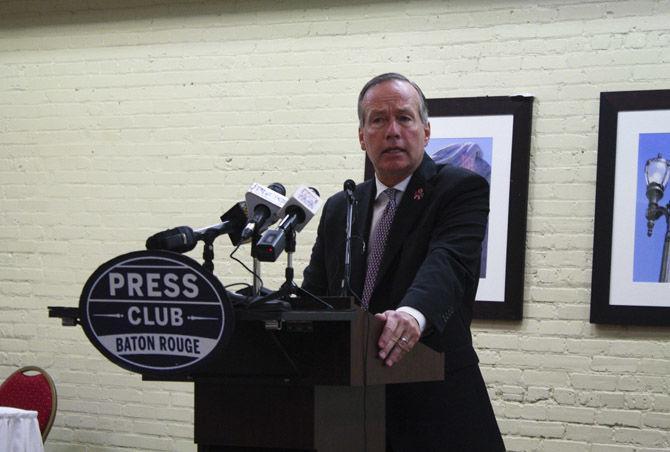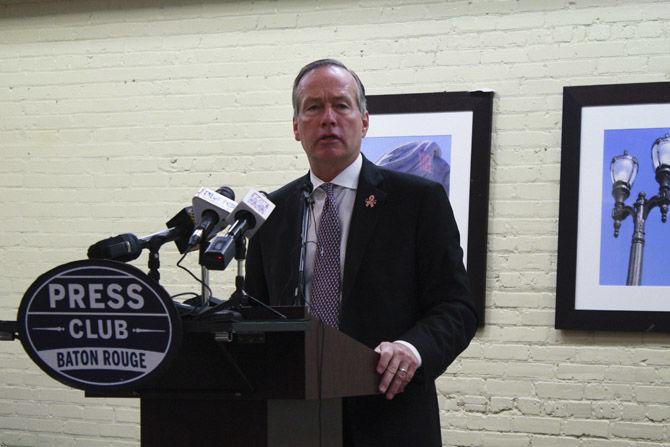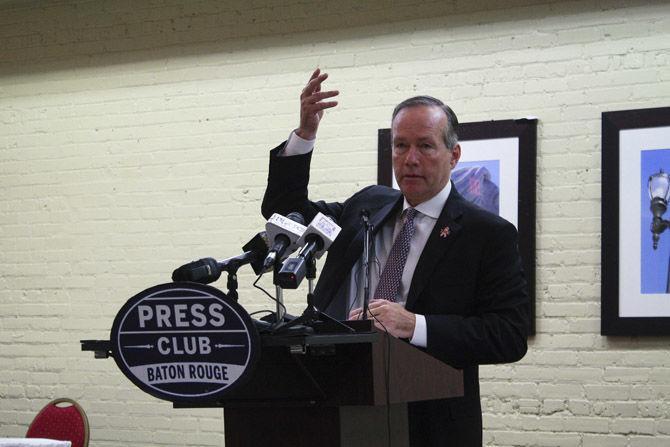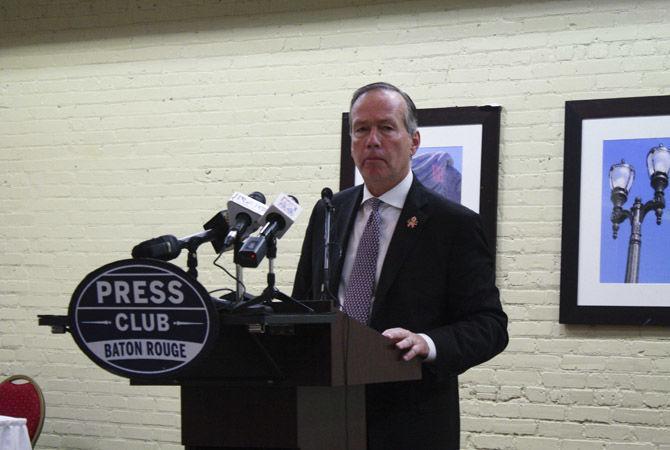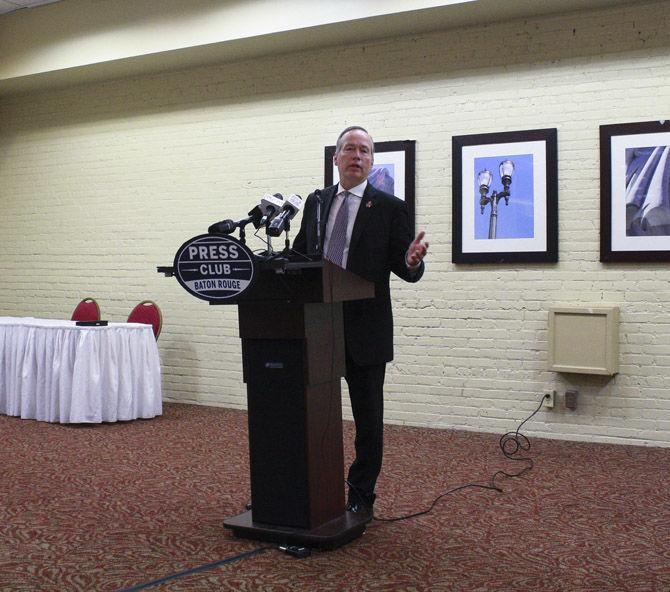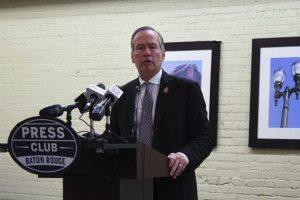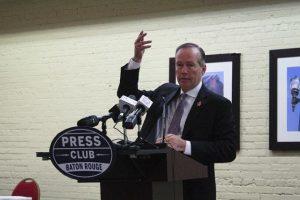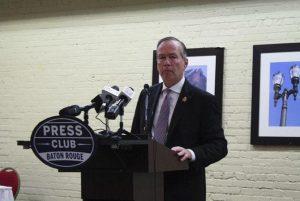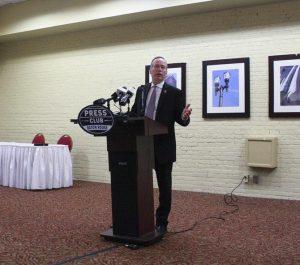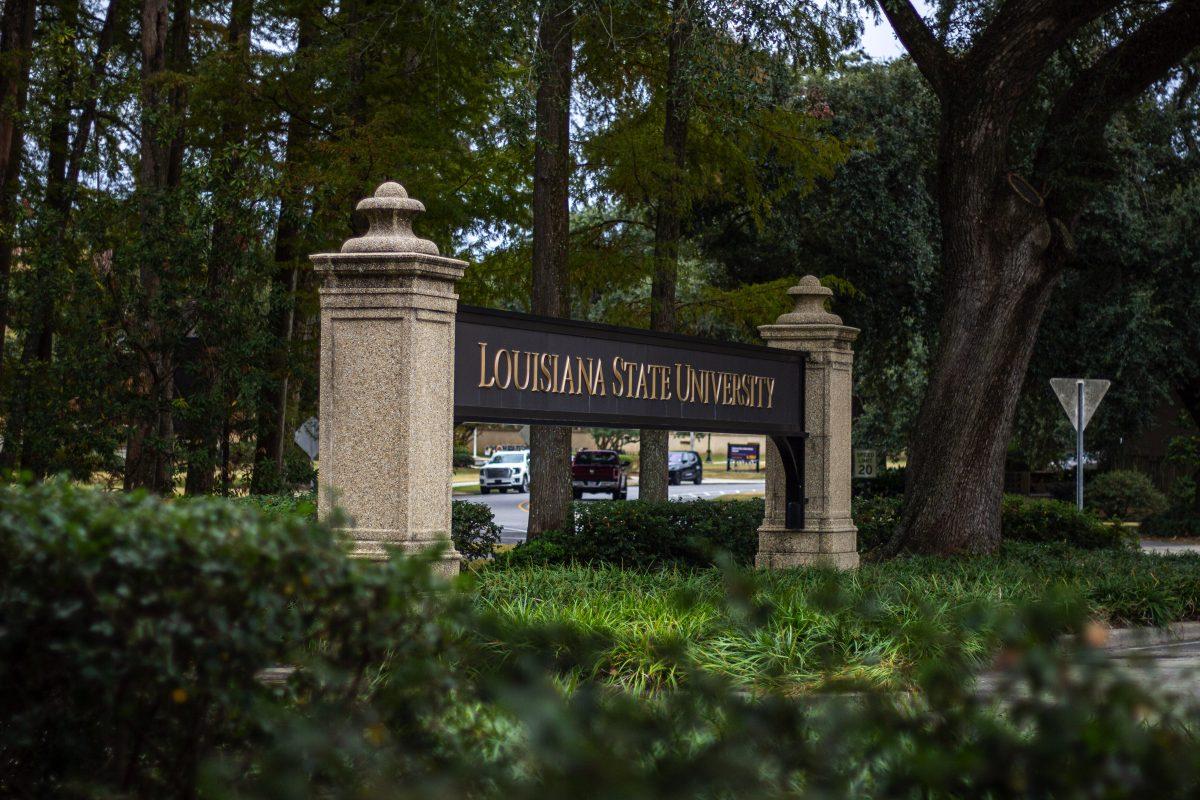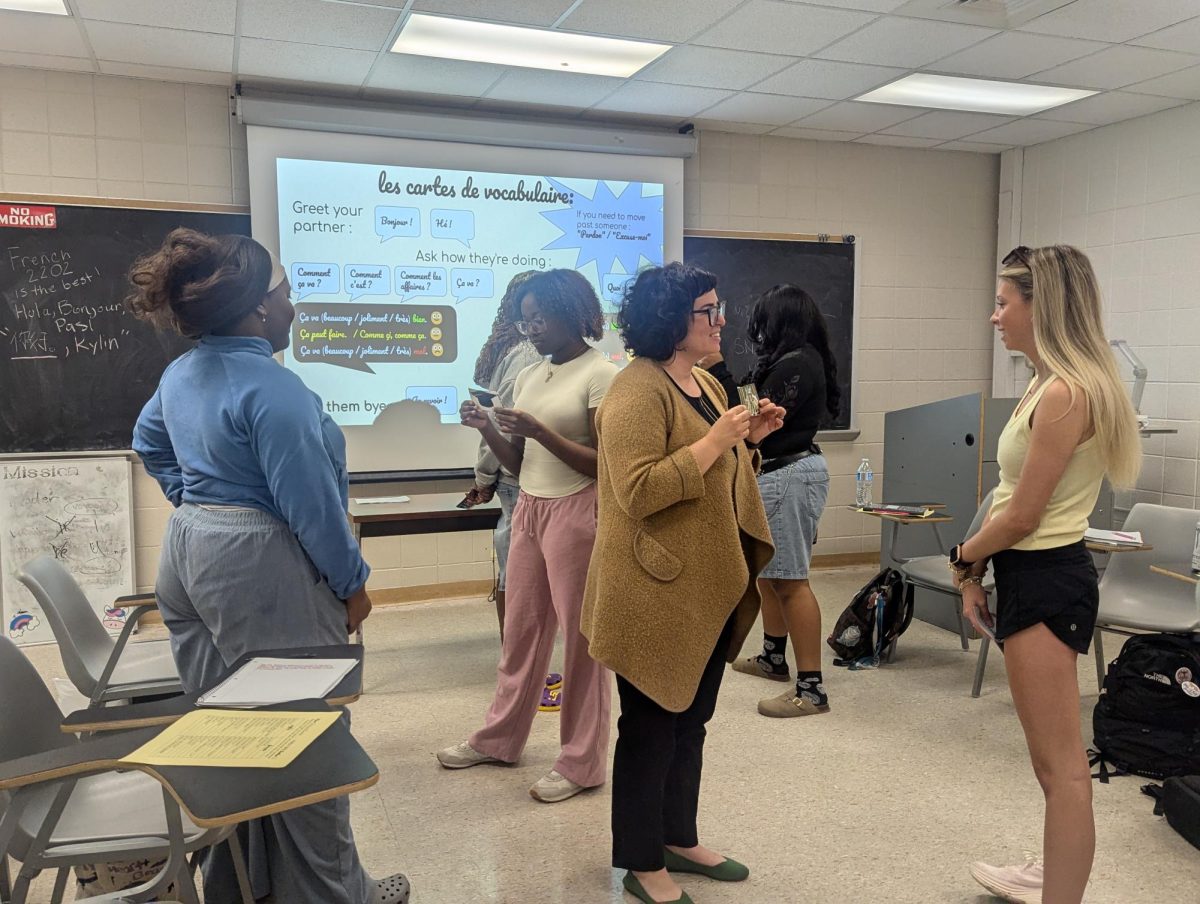LSU President F. King Alexander touted the successes of this fall’s freshman class and the University’s economic impact while downplaying the importance of the Louisiana Board of Regents’ admissions exceptions rule in his address Monday to the Baton Rouge Press Club.
Speaking to the Press Club and members of the public at the Belle of Baton Rouge Hotel, Alexander praised the University’s “holistic” admissions policy. The policy de-emphasized standardized testing in the admissions process, instead using recommendation letters, personal essays and extracurricular activities to determine a student’s chance of success at the University.
“I think this is the sixth time I have been to this body and had the opportunity to share what’s going on at LSU, but it’s the first time that I have been able to share nothing but good news,” Alexander said.
Alexander repeatedly lauded the Class of 2022, the first class admitted under holistic review, as the highest achieving class in the University’s history. Over 5,800 students made this fall’s freshman class the largest in school history, a dramatic increase over the 4,900-enrollment total in 2017.
In addition, the average GPA for incoming freshmen increased to 3.5 from 3.4 the previous year. Freshman ACT scores held steady at 26. According to Alexander, the class is also the University’s most diverse class in school history.
“Our class matches the most gifted class coming in that we’ve ever had,” Alexander said. “We are the talk of the SEC right now, we have turned it around.”
The address to the Press Club was not without confrontation though. The subsequent question-and-answer session led to some contentious moments between the University president and audience members.
Alexander called for the Louisiana Board of Regents to reevaluate its admissions exception rule in the spring. Under the exception rule, the Board of Regents allows universities statewide to admit students who do not meet admissions requirements.
As the state’s flagship institution, 4 percent of LSU’s incoming freshman class is allowed to not meet the board’s admissions requirements of a 3.0 unweighted-GPA and a 22 ACT score. Alexander argued the Board of Regents’ exception rule was a recommendation for universities and the source of 4 percent rule is unclear.
A Board of Regents’ audit of admissions procedure begins in January 2019 and will measure the University’s compliance with the board’s standards, such as the 4 percent exception rule. If found not compliant, the Board of Regents could potentially withhold funding from the University.
“It’s a recommendation from the Regents,” Alexander said. “It’s fluctuated with years. This isn’t even our largest year, we have had years where we have had many more exceptions back in 2012 and last year. It never really came up as being something. I’m still trying to figure out why those numbers exist in the first place.”
Alexander said there were about 400 students accepted this fall under holistic admissions who would otherwise not be accepted or have to appeal to the University for admission. From that figure, a little under 200 students were Louisiana natives and roughly 30 were athletes.
The University became more aggressive in its recruiting process this past year adding to the enrollment increase, according to Alexander, pushing to attract students from states like Alabama, Florida and Texas, states which have long poached Louisiana’s highest-achieving students. Alexander applauded the University’s effort to reverse that trend. In-state students make up 79 percent of the Class of 2022. A stable state higher education also enabled the University to hire over 150 new faculty members, the highest total in six years.
“LSU has a unique mission to go out and bring the best and brightest to Louisiana,” Alexander said. “To bring the best and brightest faculty to Louisiana. To bring the best and brightest staff to Louisiana, the best and brightest students to Louisiana.”


